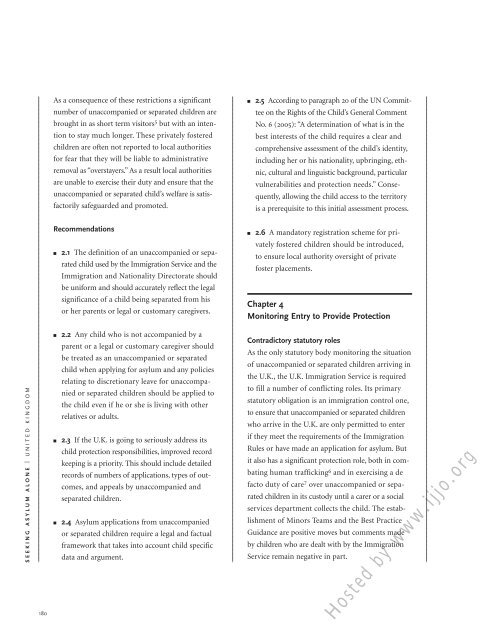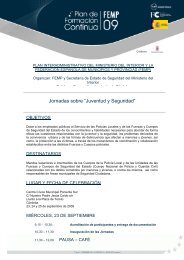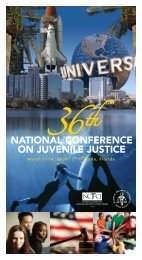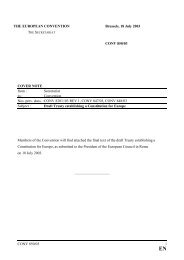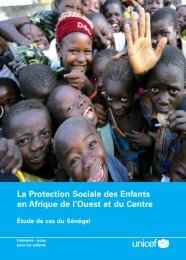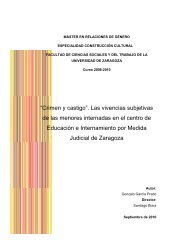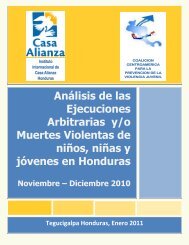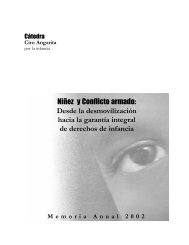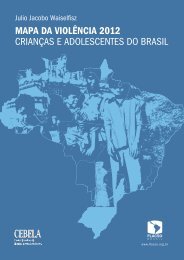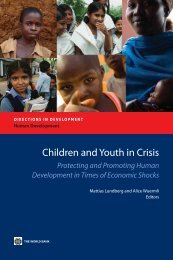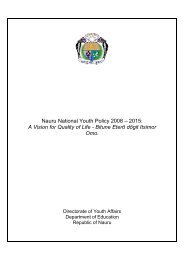Hosted by www.ijjo.org
Hosted by www.ijjo.org
Hosted by www.ijjo.org
You also want an ePaper? Increase the reach of your titles
YUMPU automatically turns print PDFs into web optimized ePapers that Google loves.
As a consequence of these restrictions a significant<br />
number of unaccompanied or separated children are<br />
brought in as short term visitors 5 but with an intention<br />
to stay much longer. These privately fostered<br />
children are often not reported to local authorities<br />
for fear that they will be liable to administrative<br />
removal as “overstayers.” As a result local authorities<br />
are unable to exercise their duty and ensure that the<br />
unaccompanied or separated child’s welfare is satisfactorily<br />
safeguarded and promoted.<br />
■<br />
2.5 According to paragraph 20 of the UN Committee<br />
on the Rights of the Child’s General Comment<br />
No. 6 (2005): “A determination of what is in the<br />
best interests of the child requires a clear and<br />
comprehensive assessment of the child’s identity,<br />
including her or his nationality, upbringing, ethnic,<br />
cultural and linguistic background, particular<br />
vulnerabilities and protection needs.” Consequently,<br />
allowing the child access to the territory<br />
is a prerequisite to this initial assessment process.<br />
Recommendations<br />
■<br />
2.1 The definition of an unaccompanied or separated<br />
child used <strong>by</strong> the Immigration Service and the<br />
Immigration and Nationality Directorate should<br />
be uniform and should accurately reflect the legal<br />
significance of a child being separated from his<br />
or her parents or legal or customary caregivers.<br />
■<br />
2.6 A mandatory registration scheme for privately<br />
fostered children should be introduced,<br />
to ensure local authority oversight of private<br />
foster placements.<br />
Chapter 4<br />
Monitoring Entry to Provide Protection<br />
SEEKING ASYLUM ALONE | UNITED KINGDOM<br />
180<br />
■<br />
■<br />
■<br />
2.2 Any child who is not accompanied <strong>by</strong> a<br />
parent or a legal or customary caregiver should<br />
be treated as an unaccompanied or separated<br />
child when applying for asylum and any policies<br />
relating to discretionary leave for unaccompanied<br />
or separated children should be applied to<br />
the child even if he or she is living with other<br />
relatives or adults.<br />
2.3 If the U.K. is going to seriously address its<br />
child protection responsibilities, improved record<br />
keeping is a priority. This should include detailed<br />
records of numbers of applications, types of outcomes,<br />
and appeals <strong>by</strong> unaccompanied and<br />
separated children.<br />
2.4 Asylum applications from unaccompanied<br />
or separated children require a legal and factual<br />
framework that takes into account child specific<br />
data and argument.<br />
Contradictory statutory roles<br />
As the only statutory body monitoring the situation<br />
of unaccompanied or separated children arriving in<br />
the U.K., the U.K. Immigration Service is required<br />
to fill a number of conflicting roles. Its primary<br />
statutory obligation is an immigration control one,<br />
to ensure that unaccompanied or separated children<br />
who arrive in the U.K. are only permitted to enter<br />
if they meet the requirements of the Immigration<br />
Rules or have made an application for asylum. But<br />
it also has a significant protection role, both in combating<br />
human trafficking 6 and in exercising a de<br />
facto duty of care 7 over unaccompanied or separated<br />
children in its custody until a carer or a social<br />
services department collects the child. The establishment<br />
of Minors Teams and the Best Practice<br />
Guidance are positive moves but comments made<br />
<strong>by</strong> children who are dealt with <strong>by</strong> the Immigration<br />
Service remain negative in part.<br />
<strong>Hosted</strong> <strong>by</strong> <strong>www</strong>.<strong>ijjo</strong>.<strong>org</strong>


